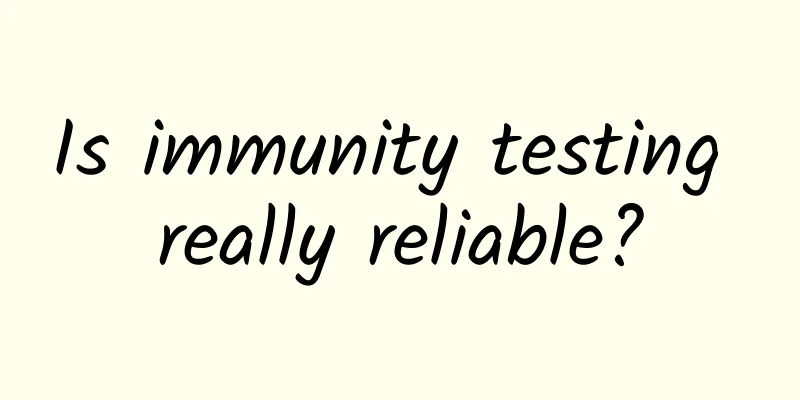Helicobacter pylori has these "effects"? Don't be complacent, you still have to treat it!

|
In 1982, Australian scientists Barry Marshall and Reuben Warren discovered a spiral-shaped bacterium in the mucus layer of the human stomach wall. They found that people with these bacteria in their stomachs had typical symptoms of gastritis on their stomach walls under a microscope. In 1984, the two scientists published a paper in The Lancet, naming the bacterium Helicobacter pylori and proposing the hypothesis that "gastric ulcers and gastric cancer are caused by Helicobacter pylori." When the hypothesis was proposed, scientists and doctors ridiculed it mercilessly. Why did they laugh? Because the human stomach is a highly acidic environment, comparable to the acid in a car battery, and strong enough to kill any kind of bacteria, so scientists and doctors at the time did not believe that bacteria could survive in the stomach. Helicobacter pylori under an electron microscope, Image source: Wikipedia In order to prove his hypothesis and draw people's attention to this theory, Barry Marshall "tested bacteria on himself" and took Helicobacter pylori that they cultivated in a petri dish . Not long after, he developed a stomach ulcer, making him a scientist who was willing to pay the price of his health in pursuit of the truth. Of course, he later used antibiotics to kill Helicobacter pylori and cured his stomach ulcer. Barry Marshall and Reuben Warren were awarded the 2005 Nobel Prize in Physiology or Medicine for their contributions in isolating Helicobacter pylori, confirming their association with gastritis and peptic ulcers, and changing the treatment of gastric ulcers. 01 Helicobacter pylori The medical profession has paid great attention to The results of gene sequencing analysis show that the human stomach has carried Helicobacter pylori for 100,000 years, which is the limit of what can be detected by current technology. In fact, Helicobacter pylori may have lived in the stomach of human ancestors even earlier. Since the discovery of Helicobacter pylori in 1982, scientists and doctors from all over the world have paid great attention to it. This is because Helicobacter pylori can be transmitted through the fecal-oral and oral-oral routes and has obvious family clustering characteristics. Therefore, its infection is very widespread. Around the world, about half of the natural population is infected . Copyright image, no permission to reprint After Helicobacter pylori infection, 70% of Helicobacter pylori infected people do not show any symptoms , unless a special carbon 14 or carbon 13 breath test or gastroscopy biopsy is done, otherwise it is difficult to detect. However, some patients will experience symptoms such as stomach pain, bloating, nausea, vomiting, acid reflux, heartburn, indigestion, loss of appetite, stubborn bad breath, etc. The disease progresses slowly, is prone to recurrence, and can also cause a variety of other digestive system diseases. In 1994, the International Agency for Cancer (IARC) declared Helicobacter pylori a Class 1 carcinogen, and it was again listed as a Class 1 carcinogen in 2017. 36% and 47% of all gastric cancer cases worldwide are caused by Helicobacter pylori, and almost 100% of chronic gastritis, 67% to 80% of gastric ulcers and 95% of duodenal ulcers are also considered to be caused by Helicobacter pylori. 02 Helicobacter pylori “Total annihilation”? Because Helicobacter pylori causes so many digestive diseases and can also cause stomach cancer, people naturally think that Helicobacter pylori is a bad bacteria and it is best not to have it in the human body. Medical staff around the world have also launched an all-out war against Helicobacter pylori. But is Helicobacter pylori really of no benefit to health? 1. Helicobacter pylori and digestive tract flora imbalance Martin Blazer is an American expert in microbiology and immunology and the chairman of the President's Advisory Committee on the Prevention and Control of Antimicrobial Resistant Bacteria. In his book "The Lost Microbes", he wrote: There are many microorganisms on and in the human body that "live in peace" with humans. They are involved in the metabolism, immunity, and development of the human body. Many diseases are actually the result of a disruption of this balance. [1] Helicobacter pylori does not necessarily cause disease . Studies have shown that for some people who are positive for Helicobacter pylori, they are infected with Helicobacter pylori because of the imbalance of digestive tract flora and the lack of other microorganisms that inhibit Helicobacter pylori. Therefore, Helicobacter pylori can send out reminders, telling people that their intestinal flora has changed . For 100,000 years, half of the world's population has been infected with Helicobacter pylori, which has taken up residence in the stomach, successfully withstanding all kinds of storms and maintaining a balance of microorganisms. So in some cases, could the presence of Helicobacter pylori be beneficial to health? This idea opened Martin Blazer's mind, and he discovered that Helicobacter pylori is actually both an enemy and a friend: as people age, it increases your chances of developing gastric ulcers and gastric cancer. But at the same time, it also protects the esophagus, reducing your chances of developing gastroesophageal reflux disease or other diseases. Copyright image, no permission to reprint 2. Helicobacter pylori and esophageal adenocarcinoma A German research team used antibiotics to treat patients with duodenal ulcers. Three years later, they tested the patients' stomachs and esophagus and found that Helicobacter pylori was indeed eliminated in nearly half of the patients, but Helicobacter pylori was still present in the other half. At the same time, the proportion of patients who successfully eliminated Helicobacter pylori and had esophageal reflux was significantly higher than those who did not . With the disappearance of Helicobacter pylori, the incidence of gastric cancer began to decrease, but the incidence of esophageal adenocarcinoma has been rising year by year. 3. Helicobacter pylori and asthma A large-scale analysis of clinical data from asthma patients found that people who carry Helicobacter pylori develop asthma at an average age of 21, while those who do not carry Helicobacter pylori develop asthma at an average age of 11, indicating that the lack of Helicobacter pylori is closely related to asthma attacks in childhood . There is also evidence that Helicobacter pylori in children's stomachs may protect them from hay fever. Copyright image, no permission to reprint 03 Infection with Helicobacter pylori Especially these people Eradication treatment is necessary More than 50% of people in my country are infected with Helicobacter pylori. The Helicobacter pylori in many people's bodies does cause harm to their health, but it is not realistic to actively screen all infected people and provide treatment. Copyright image, no permission to reprint In 2022, the Helicobacter pylori and Peptic Ulcer Group of the Chinese Society of Gastroenterology released the "Sixth National Consensus Report on the Management of Helicobacter pylori Infection" (hereinafter referred to as the "National Six Consensus"). The "National Six Consensus" points out that eradication of Helicobacter pylori can effectively reduce the risk of gastric cancer, and can also reduce the risk of Helicobacter pylori-related peptic ulcers, dyspepsia and other diseases. Eradication before gastric mucosal atrophy and/or intestinal metaplasia occurs will have greater benefits. [2] You can refer to the eradication indications recommended in the report and consider whether eradication is necessary. The "National Consensus" lists 13 eradication indications for Helicobacter pylori infection, and emphasizes that for those infected who meet the eradication indications, the benefits of eradication treatment, general health status, and possible adverse reactions of drug treatment should be fully evaluated before implementing eradication treatment, and individualized treatment should be carried out . Eradication is recommended only for those infected who will benefit the most. For example, individuals at high risk of gastric cancer generally have a family history of gastric cancer, have undergone endoscopic resection of early gastric cancer, and have gastric mucosal atrophy and/or intestinal metaplasia. The benefits of eradication and prevention of gastric cancer will be higher than those of low-risk individuals. After infection with Helicobacter pylori, Helicobacter pylori occupies most of the ecological niches in the stomach and becomes the dominant flora, squeezing out the living space of other bacteria, resulting in a significant decrease in the diversity of microorganisms in the stomach. Eradication therapy helps restore microbial diversity and ecological balance. 04 Summarize In summary, although Helicobacter pylori can remind people of digestive tract flora imbalance, its presence is associated with a low incidence of esophageal adenocarcinoma, a low incidence of asthma, and protection of children from hay fever. But remember, Helicobacter pylori is still closely related to the onset of gastric cancer, so don’t take chances with it! You should still pay attention to screening. If you find Helicobacter pylori, you should seek medical attention immediately and follow the advice of professional doctors to eradicate Helicobacter pylori. Don’t “lose the big picture for the small”! References: [1] Martin Blazer, Disappearing Microbes: The Health Crisis Caused by the Misuse of Antibiotics, Hunan Science and Technology Press, July 2016. [2] Helicobacter pylori group of the Chinese Society of Gastroenterology. The sixth national consensus report on the management of Helicobacter pylori infection (non-eradication treatment part)[J]. Chinese Journal of Gastroenterology, 2022, 42(5): 289-303. Author: Zeng Xinyue, popular science creator Reviewer: Shi Jindong, Chief Physician of the Respiratory Department, Shanghai Fifth People's Hospital The cover image and the images in this article are from the copyright library Reproduction of image content is not authorized |
<<: Is artificial intelligence about to "awaken"? Experts give some advice!
Recommend
How exactly is an iPhone locked remotely?
[[151329]] Since the second half of last year, iP...
China's power battery production totaled 31.8GWh in February 2022, a year-on-year increase of 236.2%.
The China Automotive Power Battery Industry Innov...
2022 Chengdu offline tea tasting and tea appointment door-to-door precise delivery
Offline tea delivery in Chengdu: 135-5021-2450, s...
How to create tourism advertising in information flow during the Qingming and May Day holidays?
When the targeting conditions are almost the same...
Li Xiaomeng's personal profile: SEO friendly link cheating, do you know about it, website owner?
Link cheating is a despicable behavior in SEO. Li...
How did I manage to surpass Mop.com in terms of data in just two years? Many of these methods are still applicable today!
The purpose of writing this article is just to su...
Real or Fake Monkey King? Sorry, I am actually a little orchid~
Auditing expert: Yang Yanhui, Senior Garden Engin...
Did the broken capital chain lead to the closure of technology media Gigaom?
The famous technology blog Gigaom suddenly announ...
An information flow optimizer who consumes more than 2 million per month will teach you how to do advertising scientifically!
With the vigorous development of mobile communica...
Google's latest app Cardboard Camera turns your phone into a VR camera
Although Samsung Gear VR has been very popular re...
Lack of this vitamin may lead to Alzheimer's disease...
Reviewer of this article: Chen Haixu, Deputy Dire...
No experience in short video advertising? The experienced driver will help you overtake on the curve!
This article mainly introduces the preparations b...
Living room entertainment leads smart home, ZIVOO Qingmang box triggers qualitative change in product experience
TV boxes, which were created to enhance the Inter...
I heard that you are also in product operation and have covered one million users in three months!
Introduction: Qiushibaike.com is a famous original...
What is the truth behind the popularity of the APP "Catch Dolls Everyday"?
Recently, I often see advertisements for the Tian...









